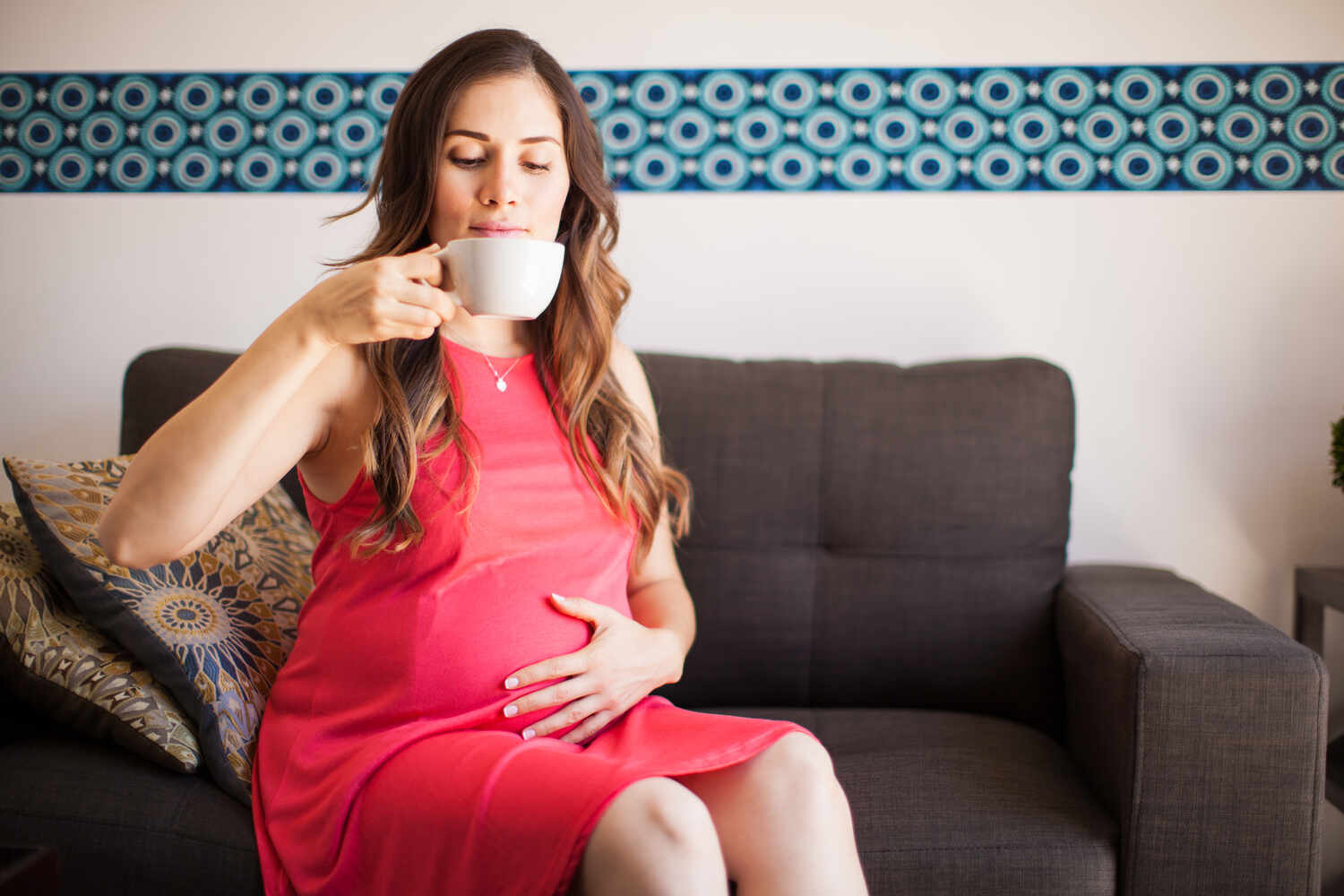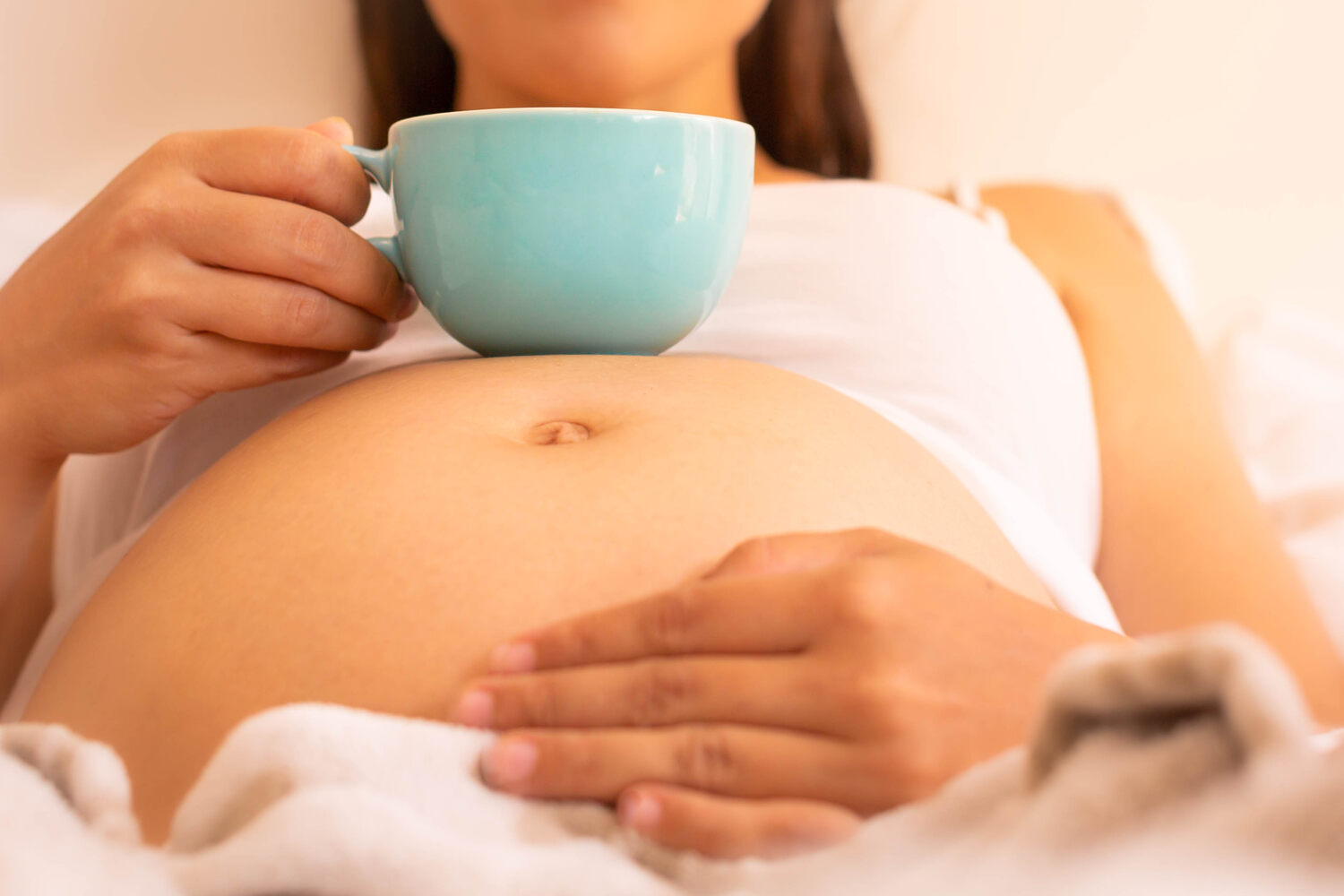
Pregnancy is a life-changing event for every woman. You need to alter your daily habits for your little one to grow inside you during this time. Coffee is one of them. Coffee is a common caffeinated drink that everyone prefers for its energy-boosting and stimulating power. However, caffeine has some negative impacts during pregnancy. Can decaffeinated coffee during pregnancy satisfy their coffee cravings?
Therefore, pregnant women are advised to cut down on their caffeine intake to avoid the potential health risks. Nowadays, decaffeinated coffee is a popular alternative to satisfy your cravings. Now you might wonder, “Is it safe to drink decaffeinated coffee when pregnant? ” This article will help you clear up your doubts about decaffeinated coffee and pregnancy.
In This Article
- Is It Safe to Drink Decaffeinated Coffee During Pregnancy?
- How Much Caffeine Is Present in Decaf Coffee?
- How Much Decaf Coffee Can You Drink During Pregnancy?
- What Are the Benefits of Decaffeinated Coffee During Pregnancy?
- What Are the Side Effects of Excess Decaf Coffee Consumption During Pregnancy?
- FAQ’s
Is It Safe to Drink Decaffeinated Coffee During Pregnancy?
On a generalized note, yes, you can take decaffeinated coffee during pregnancy. There are no guidelines on the consumption of decaffeinated coffee during pregnancy. However, a moderate intake of decaf coffee is safe as it contains less caffeine. A study conducted in 1997 indicated that consumption of excess decaf coffee during the first trimester of pregnancy increases the risk of miscarriage (1). In this context, moderate intake cannot be harmful at all. Thus, replacing the morning cup of coffee with decaf is a healthy practice for pregnant women.
How Much Caffeine Is Present in Decaf Coffee?

Coffee contains approximately 85 to 190 milligrams of caffeine in an eight-ounce cup. Decaffeinated or decaf coffee contains small amounts of caffeine. The caffeine varies from 2 to 12 milligrams, depending on the brew and variety. In decaf coffee, around 97% of the caffeine was removed while processing the beans. It has been isolated that a cup of brewed coffee around 240 ml contains around 2.4 mg of caffeine.
Thus, it can be assumed that decaf contains less caffeine than other caffeine-containing products. However, overconsumption is not healthy for pregnant women, and some commercial brands have higher amounts of caffeine in their decaf. In addition, pregnant women need to control their cravings for dark chocolate, energy drinks, and soft drinks to reduce their caffeine intake.
How Much Decaf Coffee Can You Drink During Pregnancy?
During pregnancy, a woman can take around 200 mg of caffeine per day, as per the American College of Obstetricians and Gynecologists (ACOG) (2). But more than that, it increases their risk of miscarriage, premature delivery, and low birth weight. An average-sized brewed decaffeinated coffee cup offers 2.4 mg of caffeine. Thus, you can consider two to three cups daily but not more than that. In addition, restrictions on other caffeinated food products are also important (3). Moreover, if you have any complications or a risky pregnancy, then just opt for caffeine-free alternatives like herbal teas.
What Are The Benefits Of Decaffeinated Coffee During Pregnancy?

Several studies have suggested that decaffeinated coffee has health benefits similar to regular coffee (4). Individuals with prolonged habits of decaf consumption can reduce their risk of heart disease, kidney failure, diabetes, colon cancer, Parkinson’s disease, and liver diseases. Anti-inflammatory properties are responsible for such benefits. Some health benefits are discussed below:
1. Improve Gut Health
Coffee can harm the gastrointestinal tract, but decaf is great for people suffering from gastroesophageal reflux disease (GERD). Thus, coffee elevates gastroesophageal reflux, but the decaffeination process can reduce the effect. During pregnancy, it is common to suffer from gastrointestinal problems. In addition, coffee consumption can stimulate acid reflux, and pregnant women can feel a loss of appetite, nausea, a feeling of fullness, heartburn, and vomiting. You can have such conditions after selecting decaf during your pregnancy.
2. Rich in Antioxidants
Decaffeinated coffee is rich in polyphenols, antioxidants that reduce inflammation and oxidative stress in the body. Therefore, decaf is beneficial in eliminating the risk of inflammation and inflammatory diseases in the body. During pregnancy, antioxidant-rich foods can promote good health for the mother and the fetus.
3. Lowering the Risk of Liver Diseases
Research indicates that regular consumption of decaf coffee can reduce the risk of liver cancer due to the anti-carcinogenic properties of coffee beans. Furthermore, coffee beans contain polyphenols, which prevent oxidative DNA damage, and cafestol and kahweol compounds, which improve metabolism and remove carcinogens from the body (5). Pregnancy brings lots of physical changes in women, which overburden their vital organs and decaf can neutralize the whole process to some extent.
4. Reduces the Risk of Type 2 Diabetes
Caffeinated and decaffeinated coffee reduces the risk of type 2 diabetes and improves liver health. It helps with glucose metabolism and absorption. Furthermore, it promotes good health in individuals who consume the correct amounts of coffee daily. Gestational diabetes is a common complication during pregnancy. Thus, consumption of decaf can protect against gestational diabetes.
What Are the Side Effects of Excess Decaf Coffee Consumption During Pregnancy?

In this context, excess caffeine in the mother’s body passes to the fetus through the placenta and is deposited in the fetus’s tissues. The fetus is unable to metabolize caffeine due to a lack of enzymes. Therefore, it can precipitate preterm delivery, spontaneous abortion, stillbirth, and miscarriages. On another note, excess amounts of caffeine during pregnancy can cause caffeine addiction or dependency, along with some withdrawal symptoms like anxiety, insomnia, and restlessness.
However, excess consumption of decaf during pregnancy may cause several health concerns, like:
- Heartburn
- Stomach upset
- Dizziness
- Insomnia
- Excess urination
- Dehydration
- Rapid heart rate
- High blood pressure
Now, the question is, “Is it safe to drink decaffeinated coffee when pregnant?”It is well understood that limited consumption of decaf is safe during pregnancy. Do not overdrink, as it is decaffeinated. Always remember that it contains small amounts of caffeine, but your body cannot metabolize excess caffeine during pregnancy. In addition, commercially available decaf may contain surplus amounts of caffeine, or you may consume other caffeinated food products throughout the day, which increases your caffeine intake. The whole situation may interfere with fetus development and create unnecessary complications during pregnancy. So, enjoy your pregnancy with decaf in limited amounts because all things are allowed in pregnancy with moderate intake.
FAQ’s
1. What If Decaffeinated Coffee Is Harmful in Pregnancy?
No, it is not at all harmful during pregnancy. However, it is a healthy alternative for pregnant women to satisfy their coffee cravings. You can take in moderate amounts during pregnancy.
2. How Many Decaf Coffees A Day When Pregnant?
There are no guidelines for decaffeinated coffee consumption during pregnancy, but you may drink between two and three cups daily for better health. It all depends on your regular caffeine consumption.
References-
- Caffeinated beverages, decaffeinated coffee, and spontaneous abortion – [https://pubmed.ncbi.nlm.nih.gov/9270953/]
- Moderate Caffeine Consumption During Pregnancy
[https://www.acog.org/clinical/clinical-guidance/committee-opinion/articles/2010/08/moderate-caffeine-consumption-during-pregnancy] - Caffeine During Pregnancy
[https://americanpregnancy.org/healthy-pregnancy/pregnancy-health-wellness/caffeine-intake-during-pregnancy/] - The Nutrition Source
[https://www.hsph.harvard.edu/nutritionsource/food-features/coffee/] - Coffee, including caffeinated and decaffeinated coffee, and the risk of hepatocellular carcinoma: a systematic review and dose-response meta-analysis
[https://www.ncbi.nlm.nih.gov/pmc/articles/PMC5730000/]
